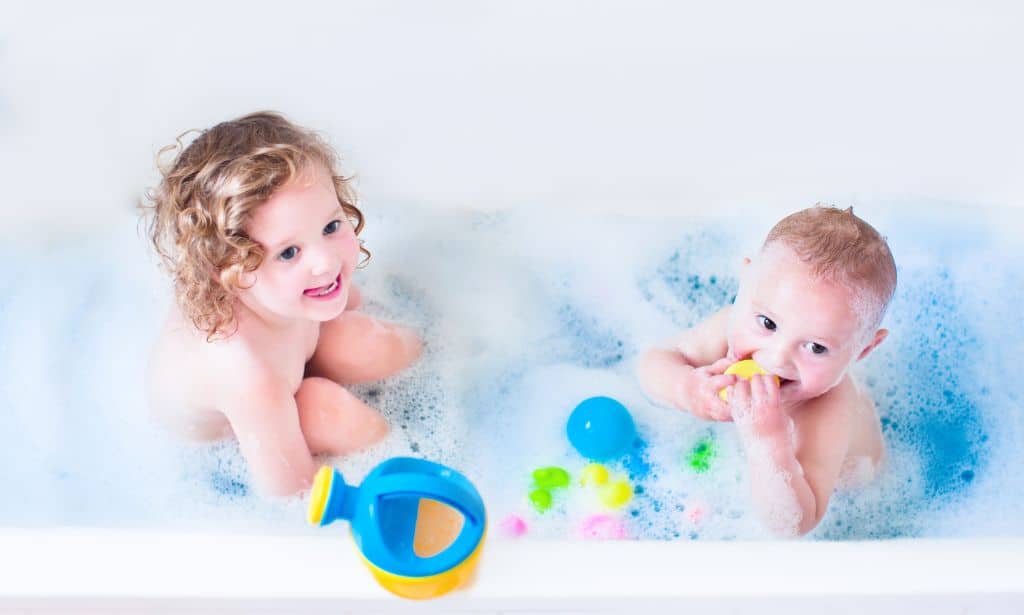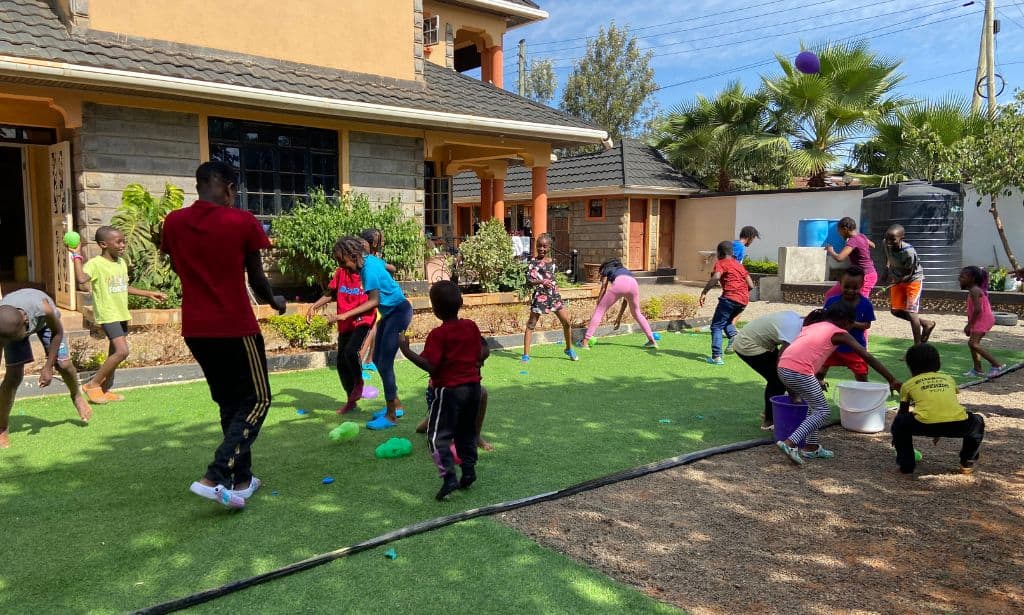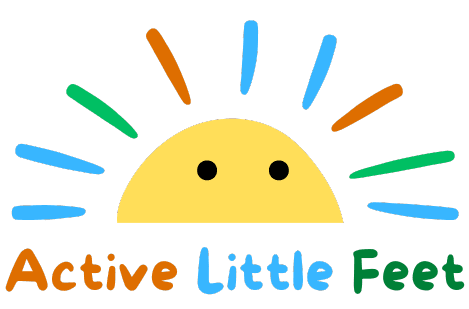There is more to water play than just a fun and popular activity. For starters, water play helps with your child’s health, promotes creativity, and provides explorative and sensual learning opportunities. But did you know water play is among the best ways to promote kids’ emotional development?
Water play is a calming, therapeutic activity, but it can also be invigorating. The gentle, repetitive activities help a child to relax, self-regulate and learn how to control their emotions. On the other hand, the lively water activities teach them social skills and how to let out pent-up energy.
And since water play can take many forms, from bathing to interactive water walls, the benefits can be wide-ranging.
Not sure what water play is? This article tells you what type of play water play is.
How Does Water Play Affect Emotional Development?
Depending on the water activity your child participates in, water play can offer emotional therapeutic benefits such as relaxing, unwinding, releasing energy and thought organization.
But water play has other less straightforward benefits to a child’s emotional development.
1. Water Play Encourages Social Skills
While water play can be a solitary activity, it’s also a great social development tool when done with other kids. This is done best in preschool, where kids play at the same water table and share tools.
Playing with others harmoniously teaches children social cues such as listening, observing, waiting on others, sharing and developing empathy. They also learn the art of collaboration and sharing ideas towards achieving the same goal.
These skills must be learned in childhood to bring up a person who can live well with others.
2. Kids Learn Emotional Intelligence Through Water Play
Emotional intelligence is being able to understand and manage one’s emotions, as well as recognize and influence the emotions of those around you. Water play helps kids to calm down, self-regulate and gain clarity in their thoughts and emotions. Most water activities are very therapeutic in that they calm your nervous system and help control your emotions, good or bad.
Instead of acting out by hitting, yelling or throwing tantrums, teachers can help kids learn to channel their emotions to other things and calm themselves down. Water play is also a great medium to let out all the pent-up anger, negative energy and even excess positive emotions.

3. Water Play Improves Self-Esteem
Water play allows kids to tackle certain challenges such as filling buckets, measuring water, and transferring water using smaller tools and making stuff. When kids overcome these challenges, they develop a sense of accomplishment leading to higher self-esteem.
What’s more, water play allows kids to face their fears and meet scary experiences. This may be in their imagination and creative games, but the results are the same.
Creativity, imagination, and collaboration with others help develop a child’s self-confidence.
4. Kids Learn to Enjoy Alone Time
Granted, you want a child who knows how to live and play well with others. However, the greatest among us are those who know how to be alone without feeling lonely or sad. The emotional ability to sit in your thoughts and emotions until you process them is a skill many do not have. It’s only by shutting out the outside noise and spending time alone that inventions are made, and problems are solved amicably.
The Best Water Play Ideas for Your Kids
Again, water play comes in many forms, including taking a bath with some bubbles and bath toys. However, you must provide space, water and tools for water play to be successful, not to mention enough time.
Some simple water play ideas for kids include;

Creating Bubbles
Making bubbles is fun, immersive and educational. Kids get to play together in making and blowing those bubbles and letting out all their emotions. All you need for this is a basin of water, and some dish soap and the kids will have a blast.

Bathing the Baby
The simple activity of bathing in a tub can be quite educational, not just fun. Add bath bombs and bubbles to the bath water and allow the child to immerse themselves in play while you wash them. You can also provide bath toys such as plastic ducks, cups, spoons and pipes to play and experiment with. Your child can splash and make all the mess they want unrestricted because they are in a bathroom.
Sponge play
Prepare a basin of water and get the kids to soak up the water using a sponge and transfer it to an empty basin by squeezing the water out. Besides being great for social skills and letting out pent-up energy, sponge play also strengthens hand and finger muscles.

Sand play
Mixing sand and water provides plenty of sensual exploration. The kids can add some water to the sand on a water table and make mud pies, cars, houses and anything else they like. The process of pouring water into the sand until they get the desired consistency is educational and requires patience and collaboration. Provide cups and molds to make shapes and measure water. Here are some cups and molds from Amazon incase you don’t have any.
Cork race
If you are looking for a good competitive water game, provide a cork and a straw for every child. The idea is to for each child to blow the cork across the tab using the straw. Whowever completes the task first, wins the game. You can also have two kids controlling one cork and trying to work together. Think of it like this Comelon nursery rhyme but with a cork and straw.

Water balloons
Last but not least, provide a tub of water and balloons. The kids will fill the balloons with water and tie them up. Then, they can either throw the water balloons at each other and run or have a specific target. Whoever hits the mark wins, or the person who gets hit the most loses.
The physical, cognitive and emotional benefits of water play to kids are endless. As parents and educators, we must provide the necessary tools and opportunities for water play for kids as young as 12 months. Sometimes, these opportunities present themselves during bath time and even during your trip to the beach. Check out this article on sand and water games kids can play at the beach.




